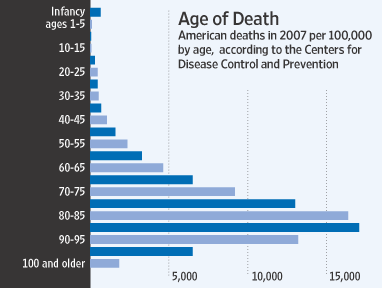
Tweeted this one earlier this week, but want to post as well.
WSJ technology columnist Peter Stein noting how Israeli private equity firm is specializing in marketing intellectual property from small local high-tech companies to big Chinese manufacturing firms.
 You read Baumol et. al's "Good Capitalism, Bad Capitalism," and you come away with the argument that the best mix is to have big go-to-market firms surrounded by a sea of small, innovative high-tech firms that feed the beasts. The authors claimed that America was basically there, in terms of that evolution, having added the high-tech small firms with the IT revolution energizing our innovation base in a number of industries. Their addition evolved our economy past the big-firm era that marked the post-WWII decades through the difficult 1970s. The authors also argued that big-firm China was trying to make a similar evolution happen and was succeeding somewhat.
You read Baumol et. al's "Good Capitalism, Bad Capitalism," and you come away with the argument that the best mix is to have big go-to-market firms surrounded by a sea of small, innovative high-tech firms that feed the beasts. The authors claimed that America was basically there, in terms of that evolution, having added the high-tech small firms with the IT revolution energizing our innovation base in a number of industries. Their addition evolved our economy past the big-firm era that marked the post-WWII decades through the difficult 1970s. The authors also argued that big-firm China was trying to make a similar evolution happen and was succeeding somewhat.
Now with the Great Recession, we get two counter-arguments coming to the fore: 1) globalization is slowly robbing America of its industrial base through off-shoring of manufacturing and losing the proximity between innovation and manufacturing is making us less competitive; and 2) China's increasing reliance on/championing of national flagship companies signals a retreat from further marketization.
My sense is always that linear projections usually fail, so waxing and waning is the norm. You go too fast down one path, so you pull your foot off the pedal for a period. I think some American companies in some sectors are recognizing the need to more closely tie innovation with manufacturing. But in others, like automotive, you don't have a whole lot of choice given the market expansion going on in Asia and Latin America.
In general, I'm a big believer in IBM CEO Sam Palmisano's notion of a globally-integrated enterprise that sources local, R&Ds local, hires local, manufactures local and sells local--just all over the world. It's the truly globalized or truly distributed version of the old multinational. I think companies that do that will fare best over the long haul, understanding that, as countries "rise," they're naturally going to want to carve out space in their expanding domestic market for national flagship companies. To me, this is China's path right now, along with a firm desire to lock-in access to raw materials around the world through their state-run extractive industries and farm land leasing/purchases. I think that mindset is a bit 20th century (supply risk oriented versus price risk oriented), but there you have it when a single-party state remains in power.
Now how China seeks to extend its evolution toward that big firm/small firm mix is to force foreign companies who seek entry into its expanding domestic market to turn over their technologies in joint ventures, something that's naturally going to create a lot of friction.
Less friction filled is what this Israeli private-equity firm is doing. Infinity Group is simply treating China like one giant big firm to which new technologies can be sold, with it playing matchmaker. The process reminds some of when Silicon Valley did the same for Taiwan way back when. Like Taiwan, China wants--nay, NEEDS--to move up the food chain rapidly in order to bring similar development to its better-than-a-half-billion interior rural pool that it has to-date achieved with the urbanized coastal provinces. Then there's China's demographic clock ticking, reflected in the long-term loss of 100m workers by 2050 and the piling up of 400m-plus elders by then.
To me, this is a next, natural phase for globalization, with smart small countries becoming more Israel-like and big, labor-filled developing countries emulating China's strategy, which, quite frankly, isn't unique whatsoever and really is just an updating of what Japan did (the Michael Pettis argument). If China were to achieve the same per capita GDP growth that Japan did, it could grow rapidly for another quarter century, says Martin Wolf, but . . .
The most interestingly pessimistic view comes from Michael Pettis of Peking University’s Guanghua School of Management. The characteristic of Chinese growth is that it is “unbalanced”, as Mr Wen notes: it is highly dependent on investment as a source of demand and driver of supply (see charts). It is, in a sense, the most “capitalist” economy ever.
Thus, between 1997 and 2009, gross investment rose from 32 per cent to 46 per cent of GDP, while household consumption fell from 45 per cent of GDP to a mere 36 per cent. This must be the lowest share of consumption in any significant economy ever. In a country with hundreds of millions of poor people, it is even shocking. Meanwhile, the rising investment rate has been the main driver of growth. In the early 2000s, “total factor productivity” – increases in output per unit of input – were also important. But the contribution of higher efficiency has been waning.
This, Prof Pettis argues, is a “souped-up version” of the Asian development model we saw in Japan and South Korea in earlier decades. The characteristics of this production-oriented approach are:
- transfers from households to manufacturing, via low interest rates on savings
- repressed wages and a depressed exchange rate
- very high investment
- rapid growth of exports; and
- high external surpluses.
China is “Japan plus”: its investment rate is higher, trade surpluses larger, rate of consumption lower and exchange rate intervention bigger.
This has been an extraordinarily successful development model, but, notes Prof Pettis, it eventually runs into the constraints of “massive over-investment and misallocated capital”. He continues: “In every case I can think of it has been very difficult to change the growth model because too much of the economy depends on hidden subsidies.” Moreover, China’s scale will shift the price of imports, particularly raw materials, against it, so accelerating the decline in profits.
In China, a rising rate of investment is needed to maintain a given rate of economic growth. At some point, investment will stop rising and growth will slow. China will then face the Japanese challenge: how to sustain demand as the required rate of investment collapses. If, for example, the gross investment needed to sustain a 10 per cent rate of growth is 50 per cent of GDP, then the rate of investment required to sustain 6 per cent growth might be just 30 per cent of GDP. With its massive dependence on investment as a source of demand, any decline in expected growth threatens a huge recession.
One answer would be another government-driven investment surge, however low the returns. The more attractive answer is faster growth of consumption. There is evidence of that during the past two years. But, as Prof Pettis notes, for consumption to grow consistently faster than GDP, household disposable income must also do so. Yet if this is to happen, income must be shifted from the corporate sector. That implies a squeeze on profits, through higher interest rates, higher real wages or a higher exchange rate. But that increases the risk of an investment collapse, with dire consequences for demand. As Prof Pettis argues, in China “growth is high ... because consumption is low”. Rebalancing the economy towards household consumption could undermine the ability to sustain growth itself. If so, China is on an investment treadmill.
Old story: there ain't no such thing as a free lunch. How China has grown makes it harder--with each passing year--to get off the investment treadmill. But that investment level, and the requirements of a trade surplus to feed it, creates it own negative feedback look, which China is just beginning to encounter. Can it run a huge trade imbalance with the developing world like it did with the West, using renminbi this time around? Pretty tall order considering its resource draw. Pettis's point isn't that China can't rebalance, just that it won't be a smooth journey.
But I can't help thinking that the work of Infinity Group is a big plus on this score: helping move China up for the production/labor wage chain by outsourcing the start-up function to a certain extent while it slowly builds that capacity at home. Naturally, if you're already a big firm and have amassed a lot of IP, you don't want to hand it over to China as price of admission, but if you're a start-up high-tech firm who needs a go-to-market partner, I can see you being indifferent on the nationality, meaning I think we'll see this become a significant trend in the global economy. Like Baumol et. al's preferred model, I think we'll see something similar in terms of small and large states. In a globalized world, tech firms in small states have no choice but to go global because the domestic market is so small (why Israel is such a high-tech incubator).
On that basis, I become even more convinced that the "clash of civilizations" will end up being a big nothing in retrospect, meaning merely a fraidy-cat capture of when globalization starting truly opening up previously-closed civilizations, triggering a totally natural uptick in cultural friction. But you look at an Israel making this happen with China and you say to yourself, in a clash-of-civilization world, this shouldn't work--yes? And yet it does, because Israel needs to do this and China needs to do this and that economic logic surmounts all.
 Tuesday, September 20, 2011 at 9:02AM
Tuesday, September 20, 2011 at 9:02AM  Coming to a theater near them
Coming to a theater near them



































